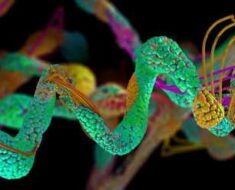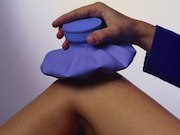PMS is pretty much the pinnacle of food cravings, especially when your hormones are raging and your cramps are so bad that it feels like it doesn’t matter what you eat.
Believe it or not, your diet can have a major impact on your menstrual cycle. “Excess sugar, caffeine, and sodium intake have been associated with increased PMS symptoms,” explains dietitian Regina Ragone, MS, RDN. “Vitamin and mineral deficiencies also may play a role in PMS, with calcium and certain B vitamins being the most problematic.”
That’s not all. “Alcohol can contribute to a hormonal imbalance and thus affect your menstrual cycle,” says Lisa M. Valle, DO, gynecologist at Providence Saint John’s Health Center in Santa Monica, CA. “Changes in eating habits, such as drastically decreasing your caloric intake, can cause irregular periods.”
So what should you be eating to make sure you feel as well as you possibly can during your period? “A healthy diet full of a variety of fruits, vegetables, foods rich in omega-3 fatty foods such as fish, whole grains, and lean meats are best while you have your period,” Valle says.
Add these to your diet during that time of the month to make the week a little easier.
Dark chocolate
Finally, you can eat what you’re craving during your period, and it may actually help you feel better. A 2022 study found that dark chocolate could help reduce menstrual-related pain and anxiety. This is likely because chocolate, in its purest form (yes, dark chocolate can be a little bit more bitter than milk chocolate, but the richness is what makes it healthier) contains copper, which can help the body make feel-good chemicals called endorphins.
Yogurt
Yogurt is always a healthy choice for breakfast, a snack, or a dessert, and it’s especially important during your period to calm bloating and stomach troubles. “Calcium may help reduce fluid retention and regulate mood-related brain chemicals,” Ragone explains. “The probiotics in yogurt are also great for your digestive tract, which can be problematic for some people during their period.”
Lentils
We lose lots of iron every month when we have our period, so it’s important to up our intake to compensate. Lentils are packed with iron, which helps replace what is lost in blood during your period.
Brown rice
During your period, swap out your white rice for brown rice to get extra nutrients. “This complex carb contains magnesium, which helps fight water retention and bloating,” Ragone says. “Vitamin B6 helps the body make dopamine (a neurotransmitter), and may reduce irritability, depression and breast tenderness, while manganese may also help with irritability and depression.”
Leafy green vegetables
Here’s what you can throw over rice: Load up on leafy greens, like Swiss chard or kale, since they’re quite the multitasker for that time of the month. They’re rich in magnesium, which may be beneficial for mood, water retention, breast tenderness, and insomnia, explains Ragone.
Salmon
Loading up on salmon is always a good idea, because it’s packed with healthy fats, but especially during your period, cook yourself a fancy salmon dinner. “It’s a great source of vitamin D, which has been shown to ease depression and inflammation,” Ragone says. “Other research has found vitamin D mediates cramps and PMS symptoms.”
Foods to have in moderation
No one knows exactly why your body crave certain foods while you have your period. “However, it is theorized that premenstrual sugary cravings are correlated with the decreasing hormone levels while the feel-good hormone serotonin drops as well and cortisol, your stress hormone, increases,” Valle says. “Foods high in sugar can cause serotonin levels to rise.”
At this point in your cycle, you’ll want to cut back on food that contains tons of sugar or salt, because they can contribute to bloating, fluid retention and breast tenderness. Foods that are sneakily high in salt include packaged or processed foods, like canned soup, and takeout. Drinks with lots of caffeine may make you feel extra bloated too.
And listen, we all want carbs at this time of the month. It’s totally okay to have them in moderation. “While carbohydrates can help improve mood, it’s important to know the difference between the effects of complex (fruits, vegetables, whole grains) versus refined (cookies, cakes candy) carbohydrates,” Ragone says. “When cravings lead to an increased intake of simple refined carbohydrates, insulin levels can spike, causing not only fluid retention, but also potentially increasing the excretion of magnesium through the urine.”
Of course, soothing period symptoms isn’t just about your diet. Drinks lots of water, get plenty of rest and hit the gym if you’re up for that, or even do a home yoga workout. “Exercise stimulates the release of brain endorphins, which can help relieve moodiness,” Ragone says. “Physical activity can help keep calorie intake under control and your weight stable. Plus, sweating may help reduce bloating if you retain water.”
We’re not here to tell you what you can and can’t eat during your period. It’s your body, and if you want to nourish it with a bowl of pasta for dinner, go for it. Take care of yourself during your menstrual cycle —that’s the most important thing — and treat yourself to some chocolate!
Before you go, read these quotes to think more about your relationship to food:

Source: Read Full Article






